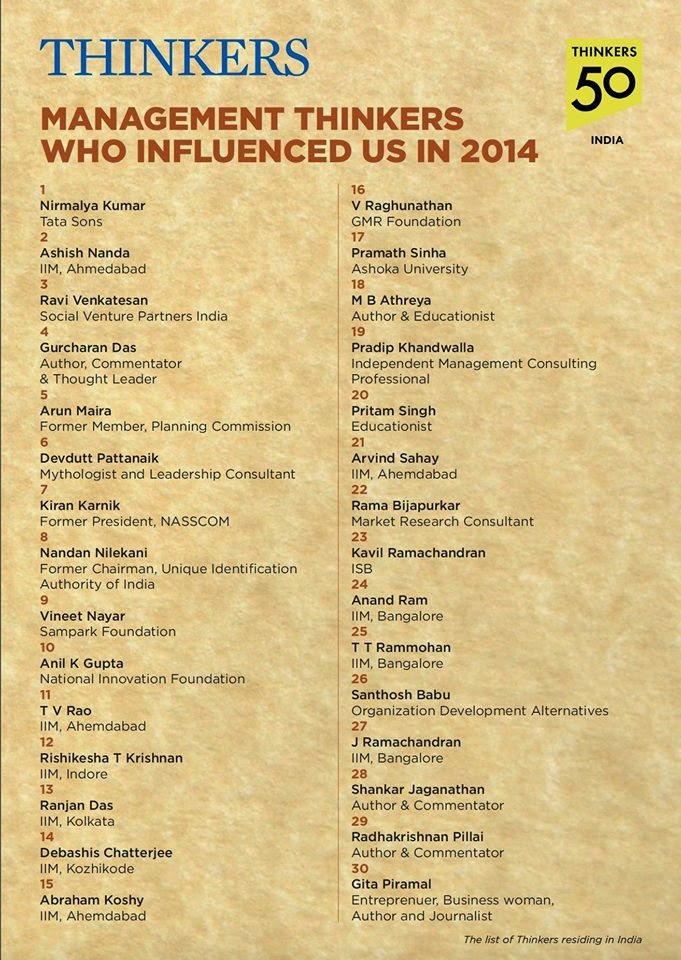Inclusive growth and similar slogans are not just the preserve of the Indian government. The innovation community, or at least some influential parts of it, is asserting the importance of focusing innovation efforts on the problems that matter such as poverty, health, nutrition and shelter.
“Innovation, Sustainability, Development: A New Manifesto” (ISD) is the title of a thoughtful document emerging from the joint efforts of two institutions with strong credentials – the Institute of Development Studies (IDS) at Sussex, and the Science Policy Research Unit (SPRU) at the University of Sussex. IDS has produced excellent work in the past on core development issues such as irrigation and corruption. SPRU is the arguably the world’s pre-eminent think-tank on Science Policy and Innovation.
At the heart of ISD’s manifesto is the fact that modern science and technology may have great achievements to its credit, but millions of people are poor and malnourished and suffer from myriad health problems. Obviously, there is something wrong with the priorities of innovation if the most talented innovators focus their attention on the next iPod or iPad rather than solving these humanitarian problems. The trajectory of innovation is controlled by commercial interests (read “large corporations”) rather than the interests of people. The ISD manifesto calls for a change in Direction, Diversity and Distribution of Innovation-related activities. Diversity refers to the need for experimentation with a portfolio of options, and using the local knowledge of people rather than depending on centralized, top-down solutions. Above all, the ISD manifesto calls for a change in the politics of innovation – who makes decisions, when and where.
The ISD manifesto is available at
http://anewmanifesto.org/wp-content/uploads/steps-manifesto_small-file.pdf
“Knowedge Swaraj: An Indian Manifesto on Science & Technology” (KS) is the outcome of the work of two Indian groups – Knowledge in Civil Society (KICS) and the Centre for Knowledge, Culture and Innovation Studies at the University of Hyderabad. KS builds on a strong Indian tradition of decentralized innovation in the Gandhian movement, and the efforts of movements such as the KSSP and PPST in recent decades, to argue that knowledge needs to be more participative and democratic, community knowledge is valuable, and that the public should be involved in important strategic choices regarding science and technology. The focus is again on inclusiveness and changing the politics of innovation decision-making.
The KS manifesto is available at
http://kicsforum.net/kics/kicsmatters/Knowledge-swaraj-an-Indian-S&T-manifesto.pdf
Both ISD and KS emphasise the importance of these cultural and political changes in any effort to avert an ecological disaster. They imply that centralised technology decisions driven primarily by commercial interests and ignoring people are likely to result in even bigger ecological disasters than what we have seen so far.
It’s interesting to note that there is a certain coalescence between how very diverse groups are thinking. Even management gurus are moving in a similar direction. After the original “Bottom of the Pyramid” (BoP) formulation was criticized for seeing the poor as consumers rather than full participants in the development process, we now have BoP co-founder Stuart Hart advocating BoP 2.0 – a BoP innovation process which is socially embedded and evolves ground-up. Vijay Govindarajan, who was only a short time ago Professor-in-Residence and adviser to GE CEO Jeff Immelt, is now running contests for low-cost housing solutions. Innovation for the poor is certainly in fashion!
The other major movement that has embraced innovation for social needs is Social Entrepreneurship. From almost nowhere, this has become a buzzword of current discourse. Of course, its focus on scale, and the possibility of combining doing good and doing well would seem to come in conflict with the ideas of diversity and distribution in the ISD manifesto, but the idea of social entrepreneurship has certainly attracted youth all over the world.
The main problem with both the ISD and KS manifestos is the absence of a pathway to achieve their noble goals. The ISD manifesto at least discusses this issue, but the Strategic Innovation Fora and Global Innovation Council it proposes seem to be mired in the same straitjacketing that ails current political systems. Current “democratic” political systems in many countries have been captured by powerful interests and the legitimacy of movements outside these systems is questioned by the people who have captured these systems (witness the way in which the Indian political class has closed ranks against the civil society organizations in the matter of the Lok Pal bill).
Frankly, I can’t see how either of these manifestos will make much headway without a revolution, or at least an attempt at one. To bring these on to the agenda, we need new equivalents of the Greens parties in Europe. If the politics of innovation is to change, innovation will have to become a subject of politics.






